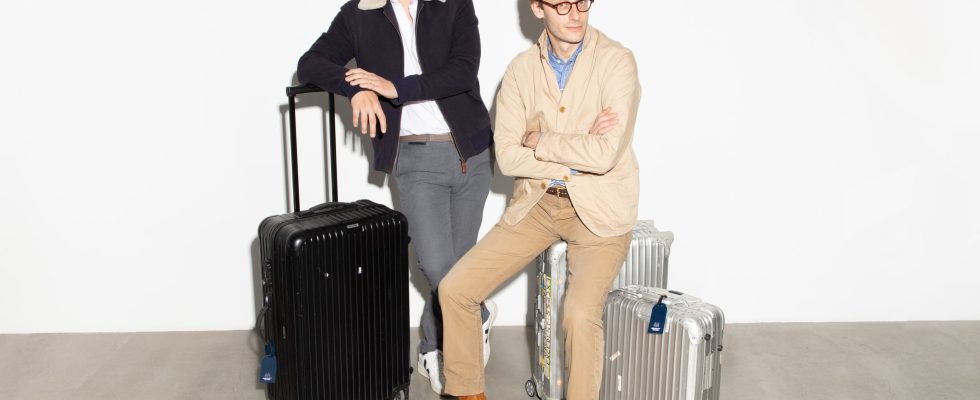Anyone who wants to travel at night must be patient. While the Austrian ÖBB has just relaunched a Paris-Berlin line in 13 hours and wheelbarrows, a French start-up has put an ambitious project on track. Midnight Trains wants to give European travelers a taste for the train again, to the detriment of the plane, which is faster but much more loaded with CO2. An objective intact, despite obstacles and a start horizon postponed several times. Co-founder Adrien Aumont is now counting on a first line by the summer of 2026. This entrepreneur, not even in his forties, is known for having founded the crowdfunding platform KissKissBankBank, sold in 2017 to La Banque Postale. The idea for his new challenge emerged in 2020, the year the world stopped traveling.
Initial funding is obtained in 2021. Xavier Niel – and his seed fund Kima Ventures – is among the early good fairies, as is Pauline Duval, business angel in the capital of the payment application Lydia in particular, Jean Moueix, an investor heir to the owners of Château Pétrus, the founders of the Le Wagon code school, the one from La Ruche who says yes… Adrien Aumont knows how to surround himself and activate his networks.
L’Express: Besides Romain Payet, former general manager of KissKissBankBank and who co-founded Midnight Trains with you, how is your team made up?
Adrien Aumont: Our operations director, Nicolas Bargelès, is a former Thello employee. [NDLR : filiale de l’opérateur ferroviaire italien Trenitalia] and Eurostar. Midnight Trains also has a strategic committee made up of experts in hospitality and national railway markets, such as Odile Fagot, who created Intercités at SNCF, Cyril Aouizerate, the founder of Mama Shelter hotels, Thierry Roussel, co-founder of Direct Energie and Franck Gervais, former European boss of the Accor group and current general manager of Pierre & Vacances.
Where is your plan to relaunch night trains to several European destinations from Paris?
The first step was to find trains with which to launch our first line. We quickly understood that refreshing second-hand equipment was not the ideal solution and opted for building new trains. We wanted motorless cars pulled by locomotives, more suitable for night trains than the self-propelled trainsets used today. An advantage because in Europe, it may be necessary to change locomotives at the border. This also allows the size of the train to be defined more flexibly. For a year and a half, we have been working with a European manufacturer on the subject. Today, we are carrying out our second fundraising with the hope of completing it before the summer. This money will allow us to launch train production, a two-year project.
What will be the first lines operated?
We first want to launch Paris-Milan-Venice, a journey of around 13 hours with an arrival in Milan, a business city, at 7 a.m., and in Venice, more touristy, at 9:45 a.m. We will then develop others, still from Paris to the south: Nice, Barcelona, Florence-Rome. These are connections which today attract between 2.4 and 4 million travelers per year, mainly by air. We want to attack these large markets first, to put the right capacity in front and at a competitive price. For comparison, Paris-Vienna has 700,000 visitors per year, Paris-Berlin 1.2 million.
Compared to the initial ambition, you have postponed the commissioning of Midnight Trains by several years. What are the biggest obstacles you face?
Find rolling stock and finance yourself. Because our project is unprecedented, both on an industrial level – manufacturers no longer make locomotive-hauled cars and are used to working with historic operators rather than start-ups – and on a financial level. The funds do not invest in rail, which has always been a public sector. Convincing them takes time and education.
To encourage the ecological transition, President Emmanuel Macron himself called, in 2020, for a relaunch of night trains. Do you benefit from public support?
We have not received any public subsidies so far, nor any concrete help from the French government. They certainly consider that night trains should only be relaunched by the SNCF. We hope to welcome one or two parapublic funds in the current funding round. The European Commission has selected us as a pilot project for cross-border lines but it is more a matter of “psychological” support! Today the railway is not European, it remains domestic. The commission is just trying to help us cross borders.
The SNCF has just relaunched the Paris-Aurillac night service. It is a partner of the Austrian ÖBB within the framework of Paris-Berlin inaugurated this evening. Are you taking advantage of this movement?
We can say that this contributes to a more global interest. In France, by 2030, the State should order 300 night cars for French services. Italy has planned 70 cars for Trenitalia for domestic use. ÖBB, which benefits from public support, will continue to grow in this market and the Dutch European Skippers is rehabilitating trains for connections in Europe.
What is the unique place that Midnight Trains wants to take in this landscape?
We define ourselves as a hotel on rails. We consider that it is not enough to relaunch night trains, we must reinvent this product. With a basic offer, we will certainly attract people who no longer fly, out of conviction, and perhaps 1% of those who still opted for air transport. If we aim for a more massive modal shift, we need a more desirable product. This requires comfort and privacy on trains, so do not travel at night with unknown passengers. We will also offer a restaurant, room service, and a quality digital route to get your tickets and easily obtain a refund in the event of an incident. This is a small matter and comfort does not mean luxury, our offer will remain accessible.
.
